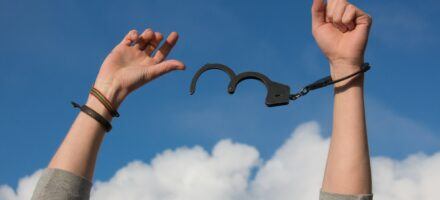Working in the Field of Pornography Recovery
I often experience something that I suspect is rather unique. When people hear what I do for a living, they'll first open their eyes wide and then go quiet. Often later, if we talk in a more private setting, they'll quietly tell me about the struggles they have had with pornography, or that their brother, son-in-law, friend, etc. are experiencing.A Common Struggle
These personal experiences tell me something important: Pornography is a common struggle. I am convinced that most people deal with pornography in one way or another, either directly or indirectly through a relationship with someone else. It makes sense when you consider that currently, pornography websites get more traffic than Amazon, Netflix, and Twitter combined each month. What's more, research tells us that two out of every three people regularly consume pornography. Can you believe that? It means that (according to statistics) two out of every three people in your life has made a habit of looking at pornography. A pornography dependence creates an environment of isolation and secrecy, which explains why people react to me the way they do. But in fact, pornography is everywhere and highly addictive--something we need to regularly discuss. About half of American families say that it is a problem in their homes. Statistics like these help those of us working in the field of pornography recovery, but I don't have to look at them to know this problem is real. I see it in customer stories and reviews, in first-hand accounts with friends and family members, and in the success of our own accountability software.
A pornography dependence creates an environment of isolation and secrecy, which explains why people react to me the way they do. But in fact, pornography is everywhere and highly addictive--something we need to regularly discuss. About half of American families say that it is a problem in their homes. Statistics like these help those of us working in the field of pornography recovery, but I don't have to look at them to know this problem is real. I see it in customer stories and reviews, in first-hand accounts with friends and family members, and in the success of our own accountability software.
Addictive but Treatable!
A therapist once told me that "pornography is very addictive but it is also very treatable. We have made great strides in treatment over the last few decades." This was awesome to hear! Whereas excessive pornography use was once considered a personal issue of judgement, now psychologists and behavioral health professionals take it seriously. In fact, the topic has been rigorously studied over that past several years. For example, Psychology Today says that indeed, researchers are "gaining momentum in this area and now have a better understanding of what pornography does to the brain." We know that when an individual views pornography their brain activity looks similar to the brain of a drug addict. So yes, pornography is highly addictive but it has never been more studied than it is right now, which means that there has never been more help for those who need it than right now. Great news!Never Give Up
When someone tells me about a pornography problem, I always tell them this: There is so much hope for recovery, from counselors, to 12-step programs, accountability software, and plain old solidarity via support groups and forums. There are so many options out there. Some of our favorites include:- Reboot Nation: They have a fantastic recovery concept and thriving forum where people share stories of hope and recovery.
- Fight the New Drug: So much information here, with a great new program called Fortify, which is all about prevention and upkeep.
- Hope & Freedom Center: Leading pornography researcher Dr. Magness has created a series of questions to help people understand how seriously their pornography use is affecting their life. For those who fall under the category of addicts, he developed a three-day intensive workshop to help those people get their life on track. He is THE current leader in pornography recovery and definitely worth a look for people who need big changes now
- Us, of course! Our app is a tool to help people initiate recovery and give them a solid plan for upkeep & prevention.



